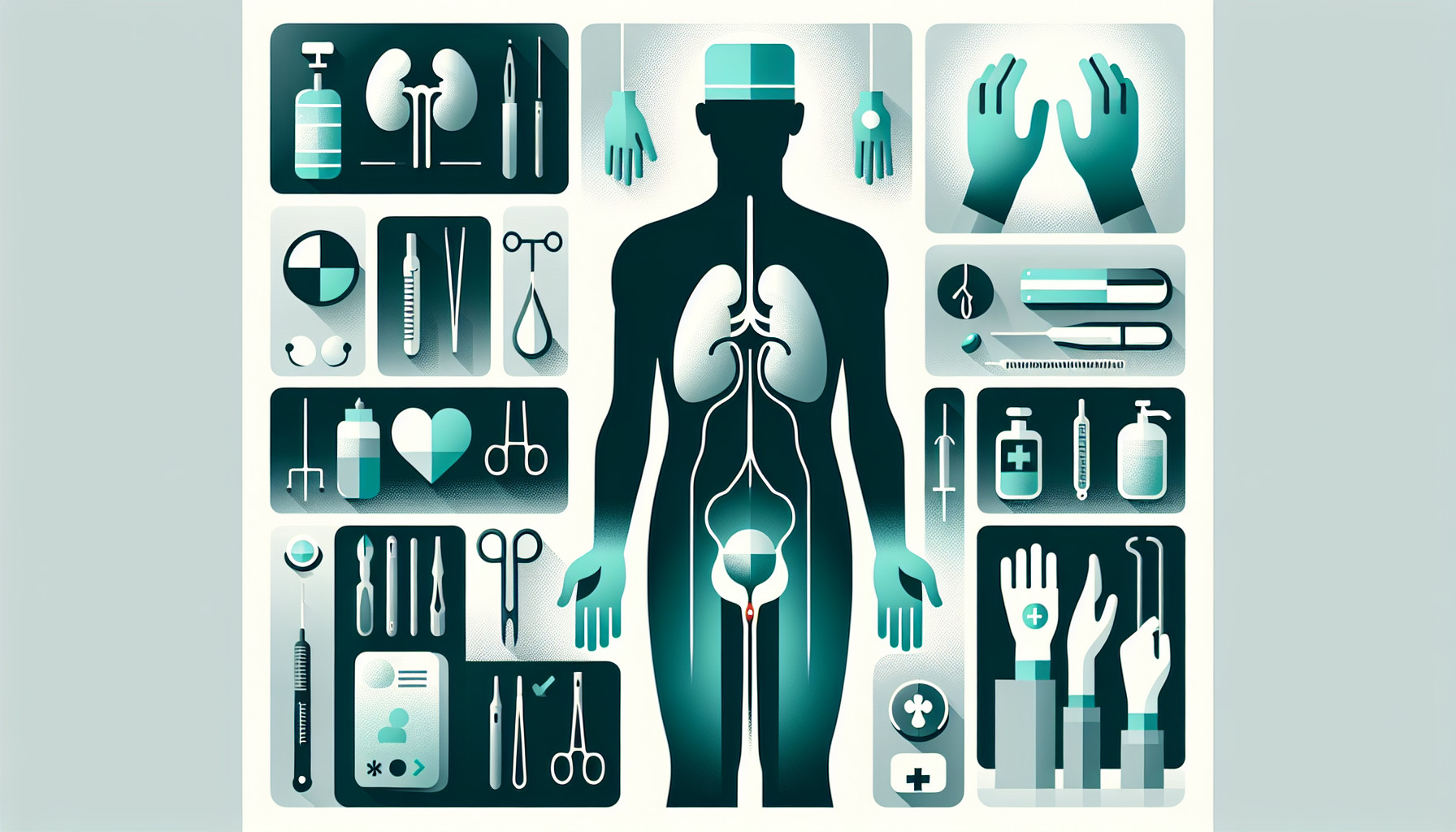Our Summary
This study looked at the different ways surgeons remove kidneys from donors for transplantation. The research was done in two parts: a survey of 50 surgeons about their practices and preferences, and a review of published studies on the topic. The survey found that most surgeons preferred to use a technique called “pure laparoscopic donor nephrectomy”, which is a minimally invasive procedure. The review of studies backed up this preference, showing that laparoscopic methods often result in less pain and faster recovery times for donors compared to traditional open surgery. However, the researchers noted there was a lot of variation in the studies they looked at, making it hard to draw firm conclusions. The study suggests that while robotic-assisted methods are promising, they aren’t widely used yet, possibly because there isn’t a lot of strong evidence supporting their benefits. The research highlights the importance of considering different factors when choosing a surgical method for kidney removal, including cost, post-surgery pain, and appearance after surgery.
FAQs
- What surgical technique do most surgeons prefer for kidney removal from donors, according to the study?
- What are the potential advantages of using laparoscopic methods for kidney removal?
- Why aren’t robotic-assisted methods for kidney removal more widely used, based on the study’s findings?
Doctor’s Tip
One helpful tip a doctor might tell a patient about nephrectomy is to discuss with their surgeon the different surgical techniques available, such as laparoscopic or robotic-assisted nephrectomy, and to understand the potential benefits and risks associated with each option. It is important for patients to have a thorough discussion with their healthcare team to make an informed decision about the best approach for their individual situation. Additionally, following post-operative care instructions, such as taking pain medication as prescribed and avoiding strenuous activities, can help promote a smooth recovery process after nephrectomy.
Suitable For
Patients who are typically recommended nephrectomy include those with:
Kidney cancer: Nephrectomy may be recommended as a treatment option for patients with kidney cancer, particularly if the cancer is localized to one kidney.
Severe kidney damage or failure: Nephrectomy may be necessary for patients with severe kidney damage or failure, either due to chronic kidney disease or acute conditions such as kidney trauma.
Kidney donation: Nephrectomy may be recommended for individuals who wish to donate a kidney to a family member, friend, or stranger in need of a kidney transplant.
Polycystic kidney disease: Nephrectomy may be considered for patients with polycystic kidney disease, a genetic disorder characterized by the growth of cysts in the kidneys that can lead to kidney failure.
Recurrent kidney infections: Nephrectomy may be recommended for patients with recurrent kidney infections or kidney stones that are causing significant health problems.
Overall, the decision to recommend nephrectomy for a patient will depend on their specific medical condition, overall health, and treatment goals. It is important for patients to discuss the potential risks and benefits of nephrectomy with their healthcare provider before undergoing the procedure.
Timeline
Before nephrectomy:
- Patient is diagnosed with a condition requiring kidney removal, such as kidney cancer or severe kidney disease.
- Patient undergoes pre-operative testing and evaluation to assess their overall health and suitability for surgery.
- Patient discusses the risks and benefits of nephrectomy with their healthcare team and makes a decision to proceed with surgery.
- Patient receives instructions on how to prepare for surgery, including fasting before the procedure and stopping certain medications.
- Patient undergoes the nephrectomy procedure, which can be performed using open surgery, laparoscopic surgery, or robotic-assisted surgery.
After nephrectomy:
- Patient is closely monitored in the recovery room immediately following surgery to ensure there are no complications.
- Patient may experience pain and discomfort at the surgical site, which can be managed with pain medications.
- Patient is gradually introduced to a liquid diet and encouraged to start moving around to prevent complications such as blood clots.
- Patient is discharged from the hospital once they are stable and able to care for themselves at home.
- Patient follows up with their healthcare team for post-operative appointments to monitor their recovery and address any concerns.
- Patient may experience changes in their daily life, such as adjustments to diet and activity level, as they adapt to life with one kidney.
- Patient may experience improvements in their overall health and quality of life following nephrectomy, especially if the surgery was performed to treat a serious medical condition.
What to Ask Your Doctor
- What are the different methods of nephrectomy available, and which one do you recommend for my specific case?
- What are the potential risks and complications associated with nephrectomy?
- How long is the recovery period following nephrectomy, and what can I expect in terms of pain and discomfort?
- Will I need to make any lifestyle changes or modifications after undergoing nephrectomy?
- What is the success rate of nephrectomy in terms of removing the kidney and addressing my health condition?
- Are there any alternative treatment options to nephrectomy that I should consider?
- How will nephrectomy affect my overall kidney function and long-term health?
- Will I need any follow-up appointments or monitoring after the surgery?
- How experienced are you in performing nephrectomy procedures, and what is your success rate?
- Are there any specific instructions or precautions I should follow before and after the surgery to ensure the best possible outcome?
Reference
Authors: Eissa A, Rodriguez Peñaranda N, Ticonosco M, Resca S, Piro A, Amato M, Ferretti S, Elsherbiny A, El-Bahnasy A, Zoeir A, Hagras A, Abdel Raheem A, Boggi U, Furian L, Territo A, Farahat Y, Bianchi G, Güven S, Puliatti S, Gozen A, Micali S. Journal: Minerva Urol Nephrol. 2024 Aug;76(4):399-422. doi: 10.23736/S2724-6051.24.05789-6. PMID: 39051889
